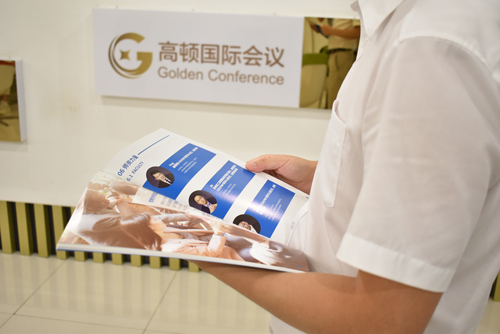
ACCA P1知识点:Bribery and Corruption
- 2018年06月01日
- 15:47
- 来源:高顿财经
- 阅读:(128)
2024ACCA备考资料
- 财务英语入门
- 历年考题答案
- 2024考纲白皮书
- 2024考前冲刺资料
- 高顿内部名师讲义
- 高顿内部在线题库
摘要:【高顿ACCA小编】2015年 ACCA 考试即将开始,我们将第一时间公布考试相关内容,请各位考生密切关注高顿ACCA,预祝大家顺利通过ACCA考试。今天为大家带来的...
【高顿ACCA小编】2015年ACCA考试即将开始,我们将第一时间公布考试相关内容,请各位考生密切关注高顿ACCA,预祝大家顺利通过ACCA考试。今天为大家带来的是ACCA P1知识点:Bribery and Corruption。小编再送一个考试资料包,可以分享给小伙伴,自提,戳:ACCA资料【新手指南】+内部讲义+解析音频
本文由高顿ACCA编辑整理,转载请注明出处
4.5 UK Bribery Act 2010
Section 7 makes it an offence where a relevant commercial organisation fails to prevent bribery by any associated individual or party (e.g. employee, agent, contractor or subsidiary) whatever the nationality, with the intention of benefitting the organisation (i.e. this is a commercial offence).
A relevant commercial organisation is one which:
is incorporated in the UK, regardless of where it carries out its business (which could be 100% external to the UK); or has business activities in the UK, regardless of where it is incorporated.
A defence against criminal proceedings under Section 7 of the Act can be made if the organisation can demonstrate that it has adequate procedures in place which are designed to prevent those associated with it from offering bribes.*
*Even if adequate controls and procedures are in place, an organisation and its senior managers would be liable if it were proved that senior management intentionally overrode the controls or failed in their duty to maintain such controls (including failure to review and update controls taking into accounting emerging threats and issues).
Illustration 4 Impact on a Foreign Operation
A foreign country, A, operates an international airline, Foreign Air (FA), which is not listed in the UK but provides daily flights to three major airports in the UK. It has various business interests in the UK including booking agents and travel agents, through which it sells holidays.
A manager from country B employed by a subsidiary of FA, which is registered in and operates from country C, was recently required by the management of FA to organise, through the subsidiary, a three-week international holiday package of 5-star accommodation and first-class travel for the foreign minister (and her family) of country C. This was considered to be an appropriate "thank you" for assistance given by the minister in ensuring that FA and its subsidiary were able to continue to operate flights to and from country C. It is a custom in country C to give gifts to business partners on the satisfactory conclusion of all business negotiations.
This action would be in breach of the UK Bribery Act as FA has business interests in the UK, is presumed to have control over its subsidiary and directly benefited from the action taken by that subsidiary and its manager. The "thank you" is clearly significant, directly related to an individual who was able to influence the outcome and would be seen by any reasonable person (in the UK and probably in country C) to be a bribe.
FA would, therefore, face court action in the UK and, depending on the level of fines imposed and its ability to pay, may find a number of its aircraft impounded at UK airports as collateral. In addition, senior managers in FA, their country C subsidiary and the country B manager may be subject to jail terms in the UK (this will depend on extradition treaties between the various countries and the UK) for their failure to prevent bribery.
Section 12 gives a detailed description of the wide territorial (basically world-wide) implications of bribery offences by individuals who have a close connection to the UK.
Close connection means:
any British person in whatever way that status was obtained (e.g. born in the UK through to a British protected person);
anyone (regardless of nationality) who is ordinarily a resident in the UK (usually means they effectively live in the UK, own, have access to or rent property on a long-term basis in the UK or stay in the UK for prolonged periods of time in any one year); or is a body incorporated under UK law (regardless of whether or not it is listed).
本文由高顿ACCA编辑整理,转载请注明出处
推荐:考生都在用的ACCA资料>>【领取2023ACCA完整资料】 (资料包含ACCA必考点总结,提升备考效率,加分必备)
版权声明:
1、凡本网站注明“来源高顿ACCA”或“来源高顿、ACCA学习帮”,的所有作品,均为本网站合法拥有版权的作品,未经本网站授权,任何媒体、网站、个人不得转载、链接、转帖或以其他方式使用。
2、经本网站合法授权的,应在授权范围内使用,且使用时必须注明“来源高顿ACCA”或“来源高顿、ACCA学习帮”,并不得对作品中出现的“高顿”字样进行删减、替换等。违反上述声明者,本网站将依法追究其法律责任。
3、本网站的部分资料转载自互联网,均尽力标明作者和出处。本网站转载的目的在于传递更多信息,并不意味着赞同其观点或证实其描述,本网站不对其真实性负责。
4、如您认为本网站刊载作品涉及版权等问题,请与本网站联系(邮箱fawu@gaodun.com,电话:021-31587497),本网站核实确认后会尽快予以处理。
分享到:
急速通关计划
ACCA全球私播课
周末面授班
其他课程
报考指南
******ACCA备考机经
价值1288元 考试必备资料 免费领取 高顿ACCA研究院******出品
价值1288元 考试必备资料 免费领取 高顿ACCA研究院******出品
领取ACCA资料包
大家都在看
-
阅读(9579)
-
阅读(9083)
-
阅读(9068)
-
阅读(8764)
-
阅读(8739)
日排行 • 周排行
- 1 P3知识点:Product/Market Diversity
- 2 ACCA F6必会自测题:VAT
- 3 ACCA P1知识点:Bribery and Corruption
- 4 ACCA F8知识点:Substantive Procedures
- 5 ACCA考试科目 F2考试知识点总结
- 6 ACCA考试F3会计基础练习:Consolidated financial statements
- 7 无形资产会计-Accounting for Intangible Assets(ACCA F7 and P2)
- 1 2023年ACCA考试科目通过率排名:哪些科目最容易通过?
- 2 2024年参加12月acca考试带什么?准考证可以打印了吗?
- 3 2024年accaf1裸考能过吗?历年通过率多少?
- 4 定了!2023年acca要考几年能考下来?要考几科才可以拿出去面试?
- 5 2024年acca要考几门?按什么顺序考?
- 6 2023年申请acca免考科目的条件?最多可以免考几门科目?
- 7 2023年哪些大学财会专业比较好?没错了,就是这几所!
- 8 acca学姐来解答2023年acca是什么考试?各科目全称是什么?
- 9 速看!2023年会计学acca是什么意思?一文教你看懂!
- 10 定了!2023年acca考位满了还有可能报上吗?
-
ACCA考试热门词
-
ACCA内部备考资料高顿ACCA为您免费提供全新ACCA资料,包括历年考题、考官报考、考官文章、考纲解析、学霸笔记、内部讲义等,同时还助您了解新学员报名注册指南、机考报考考试引导、OBU&UOL申请攻略等,点击免费获取。
-
- ACCA常见问题
- ACCA推荐阅读
- ACCA考试资讯
- ACCA原创文章
- ACCA学霸分享
- ACCA常见问答







